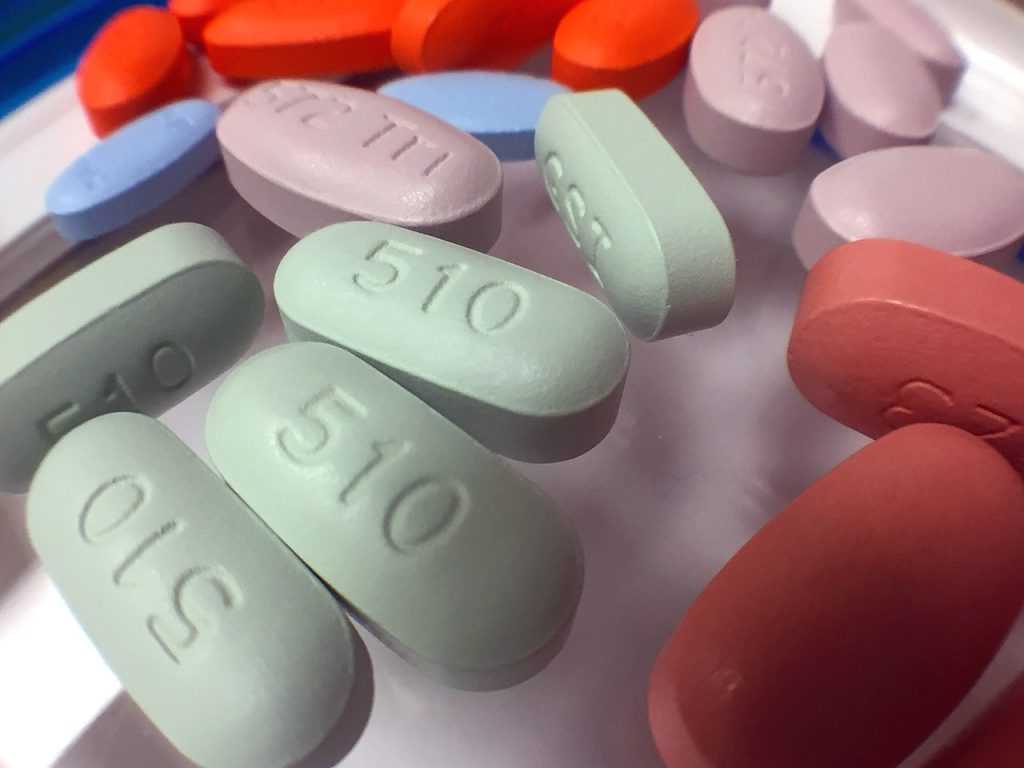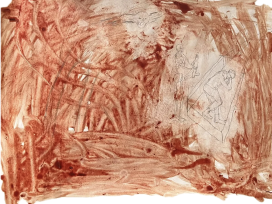
For those who suffered the consequences of Yalta’s division of Europe, the Helsinki Final Act brought grounds for optimism. Today, as Russia’s regressive war on Ukraine reopens old conflicts, it stands as a monument to European modernity.
On top of housing, work and schooling, Ukrainian refugees with HIV face an additional, urgent difficulty: how to access the antiretroviral medicines they need to suppress the virus. In Poland, they face a particular stigma, causing many HIV positive refugees to conceal their health status.
When Anna Aryabinska fled from Kyiv in March 2022 with her ex-partner’s children, she had little idea that she would end up supporting not only his family, but many HIV-positive Ukrainians in Poland. Until Russia’s full-scale invasion, Aryabinska had been an activist for the Ukrainian organisation Positive Women, supporting women with HIV. Now she is one of a group of volunteers assisting fellow Ukrainian refugees to keep taking medication for HIV, as well as integrate into healthcare systems in European countries which have very different epidemic profiles and standards of treatment.
Ukraine has the second-largest HIV epidemic in Europe after Russia, with an estimated 260,000 people living with the disease. Over six million Ukrainians are now refugees from Russia’s full-scale invasion, according to the UNHCR. In Poland, the top destination, 1.6 million Ukrainians have applied for temporary protection schemes (the vast majority are women and children as martial law bans most men aged 18 to 60 – like Aryabinska’s ex-partner – from leaving Ukraine). On top of issues around housing, work and schooling, people with HIV face an additional, urgent difficulty: how to access the antiretroviral (ARV) medicines they need to take every day to suppress the virus.

A variety of antiretroviral drugs used to treat HIV infection. Credit: NIAID Source: Wikimedia Commons
Anna Aryabinska left Kyiv in March 2022, when Russian forces were just a few kilometres from the city. Better prepared than many, she took a three-month supply of ARVs and a medical note from Kyiv doctors with her. When she reached Poland she registered right away at the local AIDS centre. Since then, she has been guiding others through a similar process as part of an online service, HelpNow, supported by the Ukrainian NGO Alliance for Public Health.
‘People are in such a panic,’ she says. ‘And they have no one else to ask.’ HelpNow has set up hubs in Poland, Germany and the Baltic states, and has helped Ukrainian refugees in 47 countries with online support, as well as in-person assistance in major refugee hubs like Warsaw. HelpNow volunteers teamed up with local NGOs to help refugees baffled by practical issues like finding translators for medical records or doctor’s appointments, receiving necessary documentation, or simply reaching the nearest AIDS clinic – there are only 16 in Poland, compared to 300 in Ukraine.
HIV is little talked about in Poland, a conservative country that rejects sex education and LGBT rights. There are no prevention programmes for populations at more risk of infection, like drug users or gay men, and the disease is highly stigmatised. Only four people in Poland have ever come out publicly in the media as living with HIV.
This was a shock for Ukrainian activists like Aryabinska, who have been campaigning for HIV awareness and tolerance for decades. ‘I have a feeling I’m back in the 1990s, compared to Ukraine,’ Aryabinska said. ‘There are some organisations that work here, but the general population knows nothing.’
There have been about 29,000 registered cases of HIV in Poland since the epidemic began in the 1980s. New recorded cases of HIV have been going up since before the COVID-19 pandemic hit in 2020, although due to the disruption caused by the pandemic they are only now showing up in national statistics. But because no one talks about it openly, few are aware that HIV cases exist, according to NGOs like Fundacja Edukacji Społecznej (Foundation for Social Education), which has been working for 20 years in the sphere of HIV treatment in Warsaw.
Medical assistance with HIV in Poland is free and universally available, and Ukrainians who have started treatment in Poland say the medical staff often have a better attitude towards them than their Ukrainian counterparts. Testing, however, is limited to 28 centres for voluntary counselling and testing, and prevention is even more limited. Only five per cent of the overall national budget for HIV is for prevention services, and the vast majority of that five per cent goes to testing.
At the beginning of the full-scale invasion, Fundacja Edukacji Społecznej received requests for help from Ukrainian migrants already in Poland who could no longer get new stocks of ARVs, which they were used to collecting from Ukraine every three months. The NGO helped to get these people onto treatment programmes in Poland and teamed up with HelpNow volunteers to assist the flood of new refugees, often meeting them straight off the trains coming from cities under siege.
‘People have only one bag, they have nothing, they don’t know what to do and of course at the beginning they try to find a safe space, and afterwards they ask about treatment,’ Magdalena Ankiersztejn-Bartczak, director of Fundacja Edukacji Społecznej, tells me. Initially Polish medical staff sometimes needed support too, to deal with a new contingent of patients. Ukraine, for example, has many women with HIV, while female and child patients are almost unknown in Poland.
‘We are a new experience for doctors here as well. Now Polish doctors are ringing me to ask how to talk to these patients; for example, what to say to persuade them to keep coming [for treatment],’ Aryabinska says.
The HIV treatment regimen used in EU countries also differs from that in Ukraine. Poland has passed legislation to ensure that Ukrainian refugee patients can continue to use the ARV medications they are used to without interruption, and made other adaptations such as allowing longer take-home stocks of medications and exchanging patient information with Ukrainian health facilities. Poland now provides ARV treatment for over 3,000 Ukrainians, according to the national AIDS centre.
But the patients’ psychological barriers to treatment can be harder to overcome. Many refugees do not want to disclose their health status, for fear of stigma, but also from a hope or perception that their situation is temporary and that they will soon return home. Struggling with depression and the loss of social structures like family and work, they can become overwhelmed or indifferent to their health, and lapse easily from adherence to daily treatment.
According to Ankiersztejn-Bartczak, many of the Ukrainians starting treatment now in Poland are late presenters, turning to doctors when the HIV infection is already at an advanced stage and causing many health complications. Some may have been unaware of their status, but HelpNow volunteers say they are approached by refugees who admit they have not taken any treatment for months because of the disruption in their lives, or the fear that if their status is disclosed, they could for example be evicted from rented properties.
As someone who has lived openly with HIV for many years and worked on a crisis hotline in Ukraine, Aryabinska is well placed to provide support. It is an exhausting, 24-hour task, but it also helps her to deal with her own trauma connected to leaving her home.
‘This work kept me sane as well, when I knew that people were in such trouble and pain, but I was able to help them,’ she says.
There is a widespread social stigma against HIV in Ukraine too. But there is also an extensive system of prevention, diagnosis and treatment, led by NGOs in partnership with state health services and designed to reach and support vulnerable groups. Another difference between Ukraine and Poland is Ukraine’s case management approach to HIV and other socially dangerous diseases. Social workers assist clients not only to start and adhere to treatment for HIV, TB or hepatitis, but to resolve a range of related medical and psycho-social issues. Despite the Russian bombing and looting of healthcare facilities and infrastructure in Ukraine, health and social workers still in the country have continued to support their clients who have left, sending them medications and monitoring their health from a distance.
As well as visiting his clients still in the eastern Ukrainian city of Kryvyi Rih, social worker Serhiy Pidvalyuk from the NGO Kryvyi Rih Public Health Foundation is now used to parcelling up six-month supplies of ARVs and dispatching them, with an accompanying letter from the healthcare facility, to his clients in Poland, Germany and Turkey. ‘They are scared to reveal their status, so it’s easier this way,’ he says.
The patients use private clinics abroad to measure their health and disease indicators, like CD4 and viral load, and send the results back to doctors in Ukraine via online messengers. After six months, Pidvalyuk encourages his clients who are still abroad to register with healthcare systems in their new place. ‘We have no right to force them to do so,’ he adds, ‘but we cannot support them forever.’
Though the Ukrainian case management system has been invaluable in supporting patients through a difficult transition, it has a downside. Volunteers, Ukrainian social workers and medics all say that Ukrainian refugees can be very passive when it comes to resolving issues abroad because they are used to relying on their case managers.
‘Case management is a process of leading people by the hand. In some ways it is wonderful, but in other ways it’s a problem,’ says Mariia Ralko, a volunteer with HelpNow in Poland. ‘Now when clients go abroad, they just sit and wait for someone to help them.’
Nevertheless, other European countries could learn something from Ukraine’s approach to HIV. ‘Maybe Ukrainians will change the medical systems in Europe,’ Aryabinska says. ‘In Poland there’s no medical-social support, and people don’t understand what we do. But now they have started to ask us for expertise, and compare the systems of service provision.’
Meanwhile, Aryabinska has used her Ukraine experience to set up the first self-help group for HIV-positive people and members of vulnerable groups in Poland. ‘I really missed live meetings and the sense of community,’ she adds. ‘And people come from all over Poland, at their own expense, so I see it’s not just me who needs it.
Reporting for this piece took place during an assignment for the Alliance for Public Health, documenting the organisation’s programmes in response to the war in Ukraine.
Published 4 March 2024
Original in English
First published by New Eastern Europe 1–2/2024
Contributed by New Eastern Europe © Lily Hyde / New Eastern Europe
PDF/PRINTSubscribe to know what’s worth thinking about.

For those who suffered the consequences of Yalta’s division of Europe, the Helsinki Final Act brought grounds for optimism. Today, as Russia’s regressive war on Ukraine reopens old conflicts, it stands as a monument to European modernity.

Artist Marharyta Polovinko’s creativity persisted in a tormented form through her experiences as a soldier on the Ukrainian frontline. The words of a recently called-up fellow creative and young family man provide a stark reminder that the Ukrainian military is buying Europeans time.